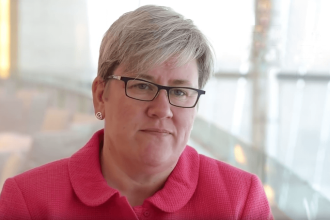By Henry Neondo
In response to the COP29 Special Report on Climate Change and Health: Health is the Argument for Climate Action published on November 7, only a few days before the 29th Conference of Parties to the UN Framework Convention on Climate Change, a.k.a COP29, it is vital to examine its implications for Africa.
This report, produced by the World Health Organization (WHO), argues that climate action is paramount to safeguarding global health. In Africa, where the health impacts of climate change are acutely felt, the report’s recommendations to prioritize health-centred climate strategies hold particular relevance and urgency.
The report emphasizes that climate change is directly impacting health across the continent, exacerbating threats like infectious disease spread, food and water insecurity that leads to malnutrition, and extreme weather events.
The WHO identifies the consequences of climate inaction as potentially catastrophic for Africa’s most vulnerable populations, few of who only contributes to less than 4% of the global greenhouse gas emissions.
Not only do health crises burden economies and strain healthcare systems, but they also increase inequalities and affect those least responsible for emissions.
The report is particularly relevant for several reasons. First Africa’s geographic and socio-economic landscape makes it especially vulnerable to climate change effects.
Rural communities, largely dependent on climate-dependent agriculture and natural resources, face growing risks from droughts, floods, and other climate-induced phenomena.
The report notes that food and water security are increasingly threatened, particularly affecting children, who are among the most vulnerable to malnutrition. Over 920 million African children are already highly exposed to water scarcity, a situation likely to worsen under current climate trends.
Secondly, a significant benefit of integrating health into climate policies, as the report suggests, is the immediate improvement in public health.
For example, reducing air pollution by moving away from fossil fuels can decrease respiratory illnesses and related deaths.
Sub-Saharan Africa experiences some of the world’s highest rates of pollution-related health issues. Shifting to cleaner energy would reduce the region’s staggering rates of respiratory diseases, offering both immediate health benefits and cost savings in healthcare spending. Furthermore, the promotion of sustainable urban design and the establishment of green spaces could counter rising temperatures, create healthier urban environments, and improve mental health, which is particularly vulnerable in extreme climates.
Then there is the economic case for health-focused climate action. Africa’s reliance on agriculture and other climate-sensitive sectors means that without intervention, extreme weather will continue to destroy livelihoods, increase poverty, and drive migration. By investing in climate-resilient health systems, as the report suggests, African countries can avoid severe economic losses. For example, the report estimates that climate resilience could prevent health costs and productivity losses projected to reach billions of dollars due to malnutrition, disease outbreaks, and occupational health hazards caused by extreme heat.
The WHO’s call for a “just transition” is particularly relevant for Africa. Historically, Africa’s contribution to global carbon emissions has been minimal, yet it bears a disproportionate burden of the impacts.
A just transition would ensure that international climate commitments account for these disparities, enabling African countries to receive the necessary support in adapting to climate threats. This equity-centered approach would prioritize health, economic, and social outcomes, helping African nations foster resilient communities rather than exacerbating inequality.
However, while the report presents a powerful case for health-centred climate policies, some challenges may hinder implementation in Africa. To begin with, the one challenge is Africa’s under-resourced healthcare systems, which may lack the capacity to implement ambitious climate and health programs.
Many African countries struggle to meet basic healthcare needs, making it difficult to pivot towards comprehensive climate adaptation strategies. Even with increased funding, building climate-resilient infrastructure may take years to yield tangible benefits, potentially leaving current generations vulnerable.
The shift towards a green economy demands significant investment, which could strain Africa’s limited financial resources. Governments face competing priorities, such as poverty alleviation, education, and infrastructure development, which may limit their ability to invest heavily in climate-related health initiatives. Implementing the WHO’s recommendations might divert resources from other critical areas, risking an imbalance in overall development goals.
The WHO report advocates for substantial international support for health-centred climate action, yet Africa’s dependency on foreign aid can be precarious. There is often a gap between pledged funds and actual disbursement, with donor nations sometimes prioritizing their interests. This dependency could delay or disrupt critical health-focused
The writer is an advocacy, campaigns and communication specialist; neondohenry@yahoo.com




